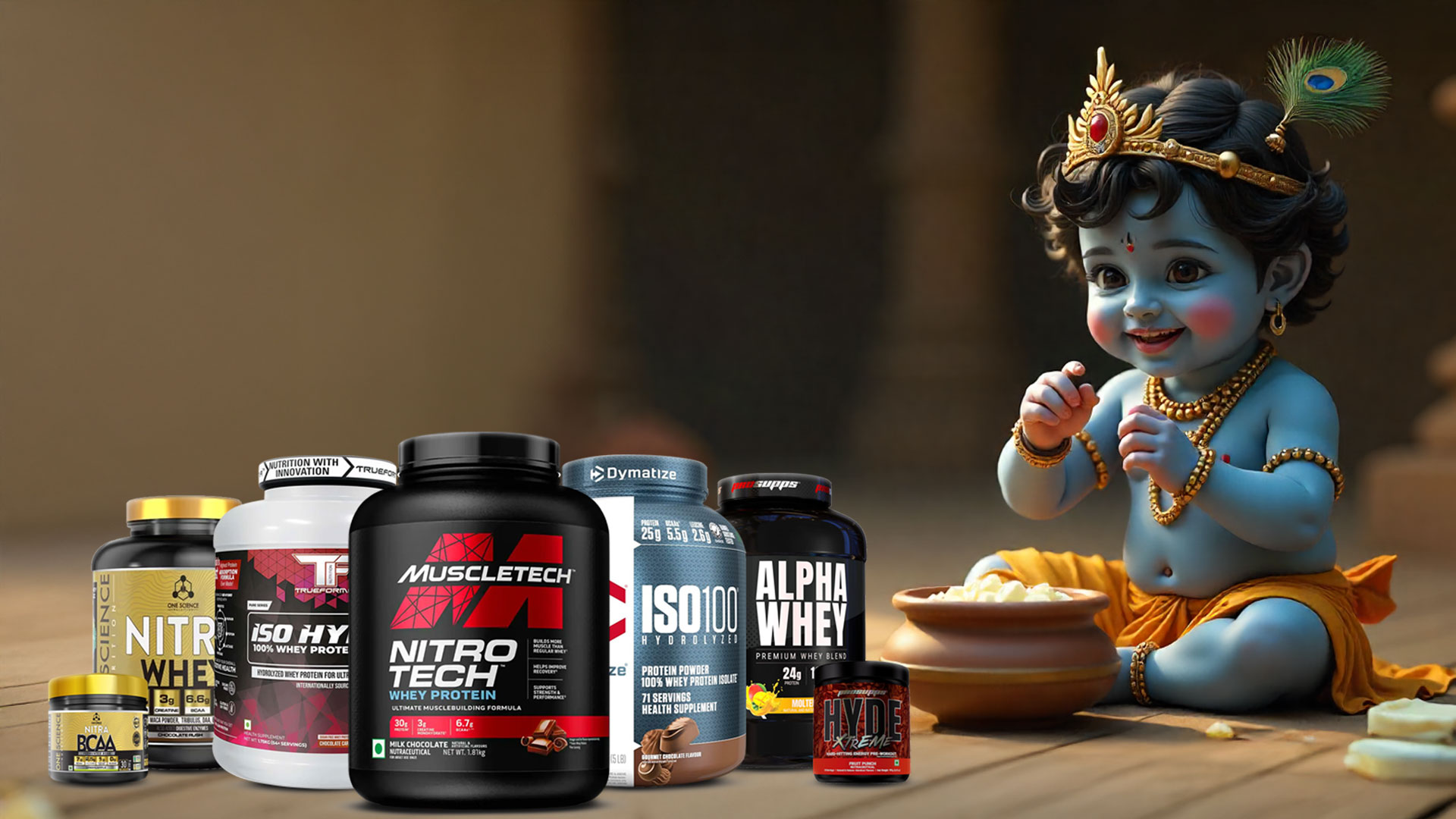16
Aug
Why Lord Krishna Loved Milk: A Supplement Breakdown

Lord Krishna, often depicted as a playful child with a penchant for butter and milk, has a deep and ancient connection to dairy products. In Hindu mythology, Krishna is revered as “Makhan Chor,” or “butter thief,” and his love for milk isn’t just a charming story—it holds a significant place in the traditions of Ayurveda and ancient Indian health practices.
But why was milk so revered? Beyond the spiritual and cultural symbolism, milk is a powerhouse of nutrition. Let’s break down the “supplements” found in milk that made it a foundational part of the diet in Krishna’s time and why it’s still considered a complete food today.
Protein Powerhouse
Milk is a complete protein, meaning it contains all nine essential amino acids that our bodies can’t produce on their own. The two main types of protein in milk are casein (about 80%) and whey (about 20%). This combination helps with muscle growth, repair, and overall body function. For a growing child like Krishna, this protein would have been essential for strength and development.
Bone-Building Minerals
Milk is famously known for its high content of calcium and phosphorus. These two minerals work together to build and maintain strong bones and teeth. Calcium is crucial for bone density, and phosphorus aids in its absorption and utilization. A diet rich in these minerals would have been key for the physical activities and strenuous lifestyle of the people in Krishna’s era.
Image & Media Optimization
A great blog post uses visuals to engage readers. For this article, you would want to include an image of Lord Krishna with a pot of milk or butter.
By using a descriptive file name and alt text that includes keywords, you help both search engines and visually impaired readers understand the context of the image.
Micronutrient Richness
Beyond the main components, milk is also packed with a variety of essential vitamins and minerals. It’s a good source of Vitamin B12, which is crucial for nerve function and the production of red blood cells. It also contains potassium, which helps regulate blood pressure, and riboflavin (Vitamin B2), which is vital for energy production. These micronutrients, though small in quantity, play a massive role in maintaining overall health and vitality.
The Ayurvedic Perspective
In Ayurveda, milk is considered a Sattvic food—one that promotes mental clarity, peace, and spiritual growth. It is believed to nourish all the tissues of the body (dhatus) and build Ojas, the subtle essence that gives the body strength, vitality, and immunity. Krishna’s love for milk, therefore, is not just about physical health but also about spiritual and mental well-being, aligning with the core principles of an Ayurvedic lifestyle.
Conclusion
While Lord Krishna’s love for milk is a beautiful part of a sacred narrative, it’s also a testament to the timeless wisdom of ancient dietary practices. Milk, in its purest form, truly is a complete “supplement,” providing the essential nutrients for a strong body and a sharp mind.
